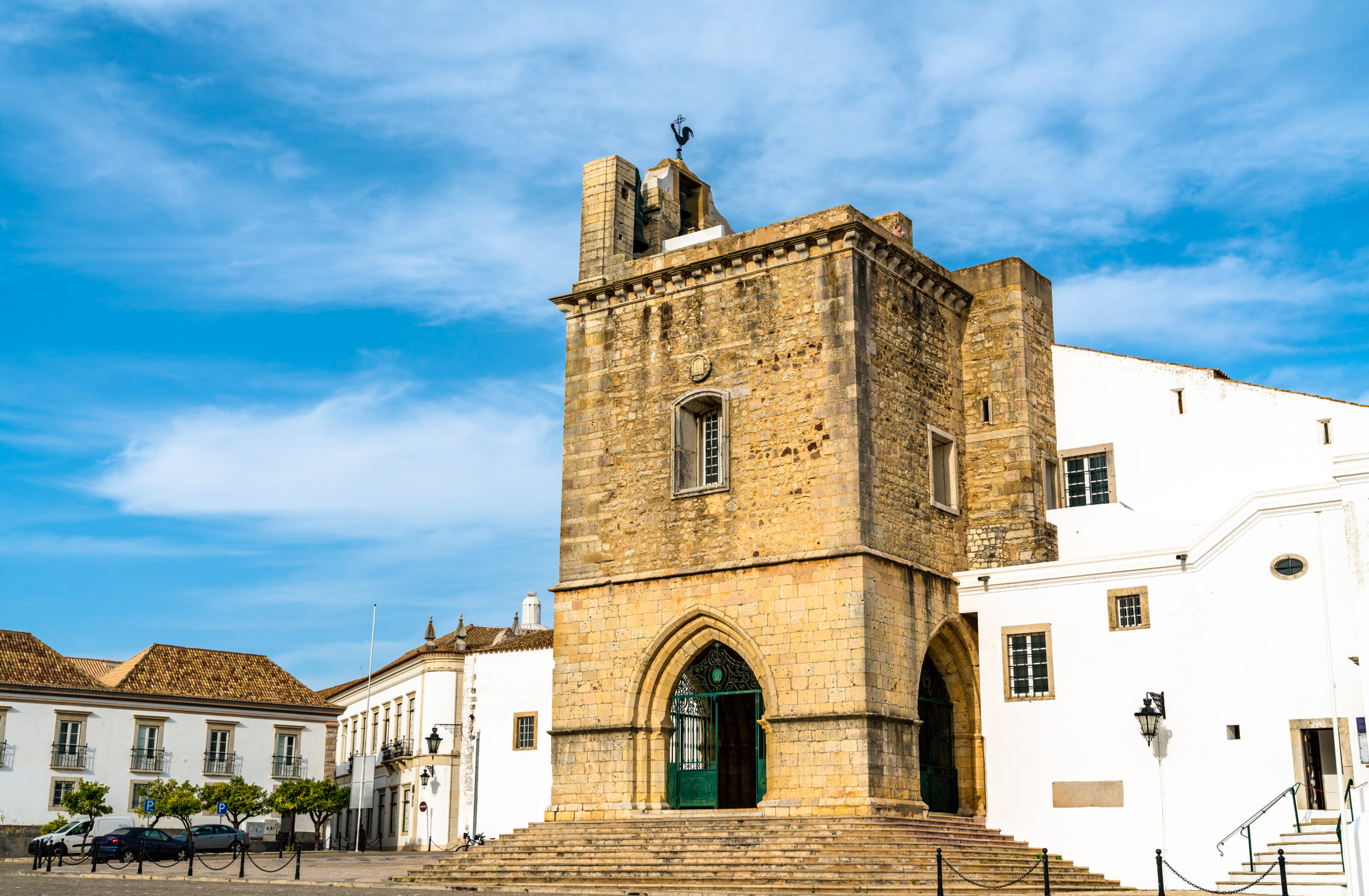Faro suffers from an image problem. Each year, millions of tourists pass through its airport before heading straight to Albufeira, Vilamoura or Lagos. The administrative capital of the Algarve remains in the blind spot of Portuguese tourism, caught between its role as an airport hub and that of an active university town. It’s a shame and a blessing at the same time. A shame because the city deserves better than its 45-minute taxi transit. A blessing because it spares it from the tourist development that has disfigured much of the coast.
The fortified historic centre: 2 hours flat
Faro’s old town fits in a nutshell. You enter through the Arco da Vila, a monumental gate that leads directly to the main square. Everything can be visited on foot in two hours, three if you linger in the cafés. The cathedral dominates the area – climb the bell tower for panoramic views over the lagoon and salt marshes. The municipal museum occupies a former convent, with a decent Roman archaeology collection, though nothing extraordinary.
The cobbled streets remain relatively untouched by mass tourism. You’ll still find residents who actually live there, not just souvenir shops. The Igreja do Carmo is worth a visit for its bone chapel – 1,200 skulls and tibias of monks line the walls. Macabre but effective. The rest of the modern city centre revolves around Rua de Santo António, pedestrianised and commercial. Honestly, after walking around the ramparts and having a coffee on a shaded terrace, you’ll have seen the essentials.
Faro Island beaches: accessible but not exceptional

Praia de Faro sits on a sand spit accessible by a single road that crosses the lagoon. Take bus number 14 or 16 from the city centre, or drive with paid parking in summer. The beach stretches for several kilometres, bordered by dunes and a few fish restaurants. The water remains shallow for dozens of metres – perfect for families with children, less so for those wanting to swim.
The atmosphere oscillates between Portuguese family-friendly and touristy depending on the area. The further you move from the main car park, the more peace you’ll find. Infrastructure remains basic: a few beach bars, parasol rental, public showers. If you’re looking for the Algarve’s typical ochre cliffs or photogenic coves, look elsewhere. Faro beach offers decent sand, clean water and space. That’s it. For spectacular scenery, head to Ponta da Piedade near Lagos.
Where to stay and eat: between quick stopover and proper visit
For an overnight transit before an early morning flight, hotels near the airport do the job without particular charm. In the historic centre, several guesthouses occupy renovated former mansions – more character but prices to match. Youth hostels around the station offer the standard budget option. Between May and September, book ahead or prepare to pay premium prices.
Restaurant-wise, avoid the tourist terraces at the marina serving bland international cuisine at inflated prices. The municipal market offers fresh fish at local prices – several small restaurants surround it and cook it simply. In the old town, look for tascas frequented by office workers at lunchtime. Generous portions of traditional cuisine without fuss. University students have their canteens near campus – follow them for hearty, cheap meals. The local speciality remains cataplana, a seafood stew simmered in a copper dish. All restaurants offer it, with varying degrees of success.
Faro as an exploration base: pros and cons
Faro presents undeniable logistical advantages. Well-connected train and bus stations, cheaper car rental than at seaside resorts, more affordable accommodation out of season. From Faro, you can reach Tavira in 30 minutes eastward, Albufeira in 45 minutes westward. Boats to the deserted islands of Ria Formosa leave from the port. The city makes a good base camp for exploring without enduring the neon lights and mojito atmosphere of seaside resorts.
The main drawback: the absence of holiday atmosphere. Faro remains a working city, with its rush-hour traffic jams and soulless residential areas. Local beaches will never rival those of the west coast. If you’re looking for postcard Algarve with lively evenings and dream beaches, settle instead towards Lagos or Carvoeiro. Faro suits travellers who prioritise authenticity and budget over idyllic settings. The city doesn’t lie about what it offers – it’s up to you to see if that matches your expectations.

